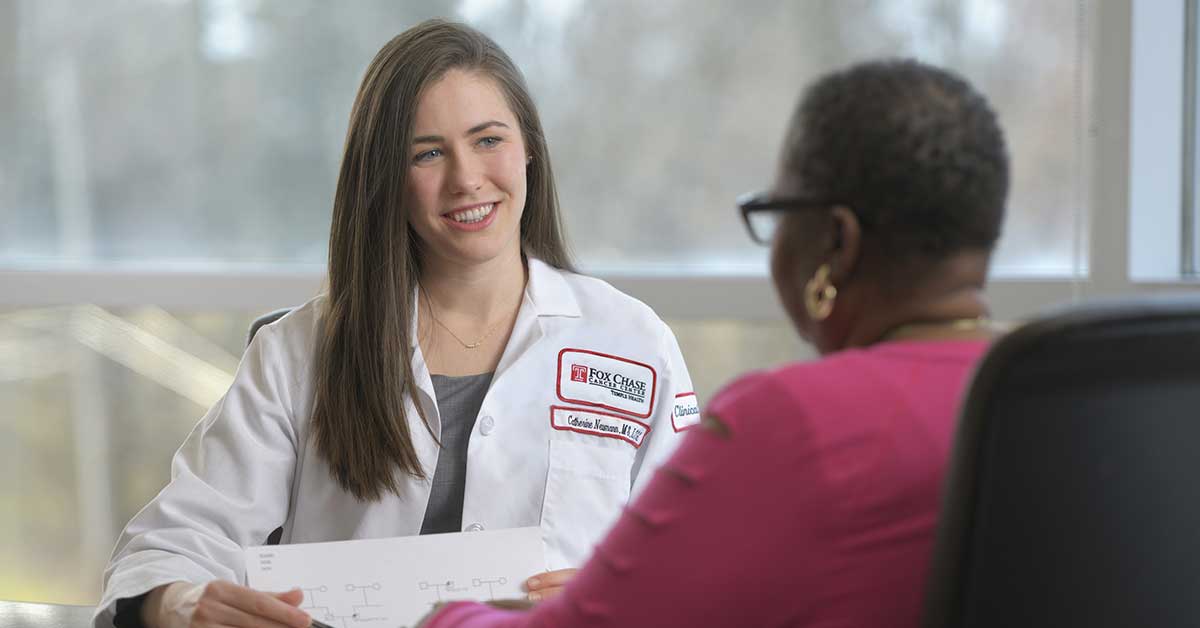
BRCA1 and BRCA2 Mutations: What We Know Today
-
More than two decades ago, researchers identified harmful mutations in two genes—BRCA1 and BRCA2—that increased the risk of breast, ovarian, and other cancers. That landmark discovery led to a screening test for the mutations and helped many individuals make informed decisions about cancer screening and prevention.
Here’s a closer look at these gene mutations and what we currently know about them.
BRCA1/BRCA2 and increased risk of cancer
People can inherit a harmful BRCA1 or BRCA2 mutation from either their mother or father. According to the National Cancer Institute (NCI), each child of a parent who carries a mutation in one of these genes has a 50 percent chance of inheriting the mutation.
Women who inherit a mutation in either one of these genes are at a significantly high risk of developing breast and ovarian cancer.
For instance, about 72 percent of women who inherit a harmful mutation in the BRCA1 gene and about 69 percent of women who inherit a harmful BRCA2 mutation will develop breast cancer by the age of 80, reports the NCI. In addition, about 44 percent of women who inherit a harmful BRCA1 mutation and about 17 percent of women who inherit a harmful BRCA2 mutation will develop ovarian cancer by the age of 80.
Harmful mutations in these genes also increase the risk of several other cancers, including breast and prostate cancer in men, and pancreatic cancer in both men and women.
Understanding these risks is an important first step in deciding whether to be screened for the mutations.
Testing for BRCA1 and BRCA2 mutations
Genetic testing can reveal if someone carries a mutated BRCA1 or BRAC2 gene. But most experts agree that not everyone should be tested. A family and personal history of cancer play a key role in deciding who should be screened.
“The best people in a family to be tested are the ones who have been diagnosed with cancer themselves because if there is a mutation, the ones with cancer are the ones most likely to carry that mutation in the family,” said Catie Neumann, MS, LCGC, a genetic counselor at Fox Chase Cancer Center. “That’s not always possible, of course, because people do die of cancer. Certainly, if your mom died of ovarian cancer, for instance, you can get tested.”
But don’t take testing into your own hands if you think you may have inherited a mutated BRCA1 or BRCA2 gene. At-home genetic testing kits can give a false sense of security without testing for all possible mutations. For example, one kit on the market only tests for three of the thousands of BRCA mutations.
Instead, you should consider talking to a genetic counselor before and after any genetic test for cancer, including for the BRCA1 and BRAC2 mutations.
Genetic counseling at Fox Chase
Anyone can reach out to the Risk Assessment Program at Fox Chase for an appointment with a genetic counselor to determine if they are eligible for genetic testing.
“During the initial appointment, we’ll go over the patient’s personal history—if they’ve had a cancer diagnosis, what their cancer screenings have looked like, and any other major medical concerns,” Neumann said. “Then we’ll draw a three-generation pedigree, a family tree, including parents, siblings, grandparents, aunts, uncles, cousins, etc. With all that information together, we can determine how suspicious we are for a hereditary cause of cancer.”
You can get a blood or saliva test that day to test for the BRCA1 or BRCA2 gene mutations or take time to think about it.
“There’s no pressure to get tested just because of the meeting,” Neumann said.
Recommendations and treatment options
What people decide to do after a genetic test for the BRCA1 or BRCA2 mutations will depend of the results of their test.
“For example, some women diagnosed with breast cancer may change surgical decisions based on this information,” Neumann said. “Perhaps they were going to get a lumpectomy, but now they may consider bilateral mastectomies due to the elevated risk to develop a second breast cancer.” Additionally, certain targeted therapies, such as a PARP inhibitor, may be offered to a patient carrying a mutation in the BRCA1 or BRCA2 genes.
If you’re not facing immediate treatment decisions, you can weigh screening recommendations and preventative measures.
“That may include earlier breast cancer screening or adding an annual breast MRI to an annual mammogram, if you’re a woman,” Neumann said. “Some women elect to have prophylactic surgery.”
Removing both breasts can reduce the risk for breast cancer, while removing ovaries and fallopian tubes can reduce the risk of ovarian cancer. Taking certain medications can also help reduce the risk of both breast and ovarian cancer. Men would also have changes to their screening, such as earlier prostate cancer screening and annual clinical breast exams.
A genetic counselor can help sort out all the results of a test and what you may or may not want to do next.
“We are always open to these conversations with individuals who are concerned about their risk. Just come in and talk with one of us,” Neumann said.
To make an appointment with a genetic counselor at Fox Chase, call 877-627-9684.
Learn more about the Risk Assessment Program at Fox Chase Cancer Center.
